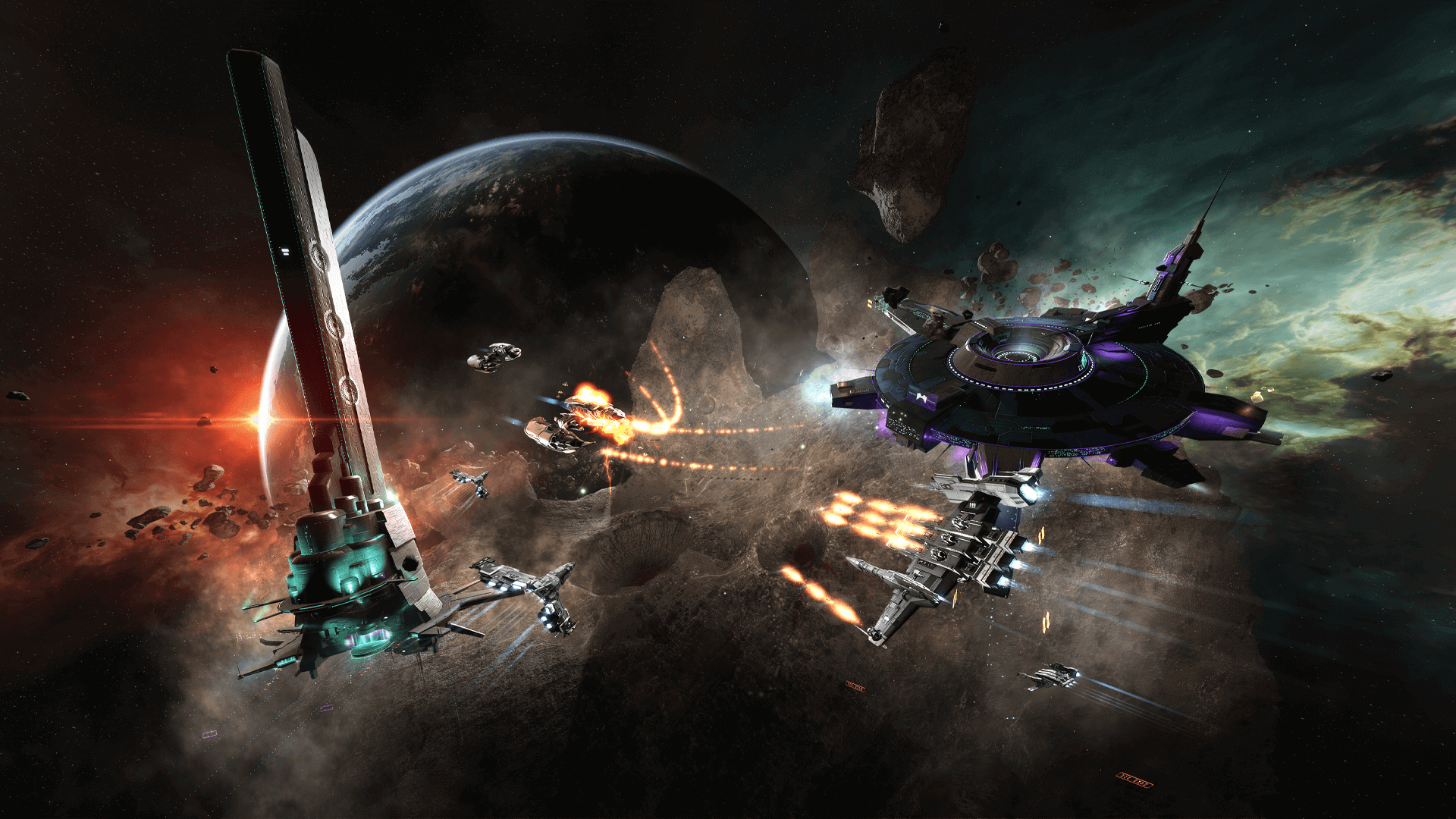
EVE Online, which was initially launched in 2003, is one of the most intricate and player-powered MMORPGs on the market. The game is set in space, and players are free to select their preferred activities – mining and crafting, interstellar trade, or outright piracy.
The game’s economy is unique because it’s entirely player-controlled, which sets it apart from other games.
Unlike many online games where in-game economies have little influence, in EVE, players govern the creation, dissemination, and cost of goods. This depth leads to real-world economic principles unfolding in a virtual environment.
Understanding the Fundamentals
Currency: The Function of ISK
In the sprawling cosmos of EVE Online, ISK is the lifeblood that keeps the economic heart of New Eden beating. As the fundamental currency of EVE, every economic action – whether it’s buying a new ship, starting a corporation, or placing a bounty – revolves around ISK.
Much like real-world currencies, ISK in EVE Online allows players to easily compare the value of items, services, and assets. But it’s not just about purchasing power. For many players, ISK serves as a status symbol, representing their influence, power, and even ability to change the socio-political landscape of the game.
The importance of ISK extends to the risk-reward dynamics of the game. Ventures with the potential for large ISK payouts often come with significant risk, whether it’s mining in volatile regions, speculating on market trends, or hunting down formidable enemies. The chance to make (or lose) massive amounts of ISK often drives players to take risks, shaping the very nature of gameplay in New Eden.
Adding to the complexity of EVE’s economy is the relationship between ISK and PLEX (Pilot’s License EXtension). Players can buy PLEX with real-world money and then sell it in-game for ISK, creating a tangible link between the real-world economy and in-game markets. This interplay means that some players can essentially “earn” their game time by trading within EVE, further reinforcing the importance of ISK.
ISK drives market dynamics, with prices of resources, ships, and modules rising and falling based on player-driven supply and demand. Every trade, investment, and production decision depends on the price of ISK. Moreover, the constant threat of loss in EVE – where a destroyed ship is gone forever – ensures that ISK retains tangible weight and significance. Insurance may cover some of the losses, but the sting of losing a well-equipped ship has real ISK implications.
At its core, EVE Online ISK is not just a digital number; it encapsulates player effort, strategy, and ambition. It’s the force behind market trades, interstellar wars, and individual narratives, making it central to understanding EVE Online’s intricate, player-driven economy.
Trade hubs and their influence
and Dodixie are important centers of commerce. Each hub has a specialty that can make or break a trader. Understanding their dynamics is crucial. For example, Jita is the biggest and most diverse, while Amarr is recognized for particular specialized products.
Supply Chain and Manufacturing
Mining Resources
Mining in EVE isn’t as simple as clicking a button. It involves scouting rich asteroid belts, possibly in dangerous space, and using the right equipment. Ores like Veldspar or Pyroxeres are common, but rare ores like Arkonor or Bistot can bring in a handsome profit.
Manufacturing and Production
After gathering resources, turning them into usable items or ships requires an understanding of blueprints, production lines, and skills. Larger corporations even set up entire production chains that span multiple star systems.
The EVE Stock Market
Buy, sell and speculate
With thousands of items in the game, the market is a playground for the astute trader. Using tools like the Market Graph, a player can predict price trends and speculate on commodities. It’s not uncommon for savvy traders to manipulate market conditions to their advantage.
Player Corporations and Influence
Corporations in EVE are similar to guilds in other MMOs, but with an economic twist. They control large assets, manage multiple production lines, and can significantly influence market prices. Some Corporations have become so influential that their economic decisions can affect market trends across the galaxy.
EVE’s complex socio-economic dynamics
Alliances and Territorial Control
Alliances are groups of corporations. Holding territory, especially resource-rich territory, is vital. Alliances often go to war over such territories, with battles involving thousands of players and assets worth thousands of real-world dollars.
Player-driven events and their economic impact
Player-driven events such as wars, betrayals, and major political shifts can turn the market upside down. A famous example was the “Burn Jita” event, in which players blockaded the major trading hub, causing a massive market shakeup.
Get rich in EVE Online
Trading Tips
Diversify: Don’t put all your ISK in one basket. Invest in different sectors.
Stay informed: Join trading channels, read forums, and keep up with in-game news.
Improve your skills: Invest skill points in trading-related skills for better margins and opportunities.
Explore and Take Advantage of New Opportunities
Beyond trading, players can explore wormholes, hunt rare NPCs, engage in piracy, or even offer mercenary services for ISK. The key is to find a niche in EVE’s vast universe, master it, and capitalize on it.
The heart of EVE Online beats through its economy. It’s a testament to the game’s design that real-world economic principles have found a home in New Eden. Whether you’re a seasoned trader or a newbie just trying to get by, understanding the economic landscape is crucial.
